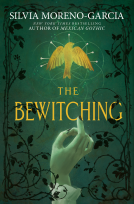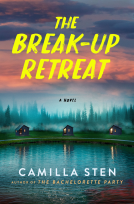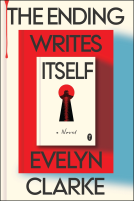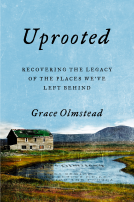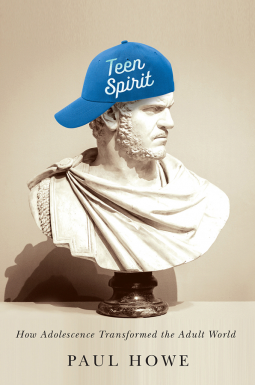
Teen Spirit
How Adolescence Transformed the Adult World
by Paul Howe
This title was previously available on NetGalley and is now archived.
Send NetGalley books directly to your Kindle or Kindle app
1
To read on a Kindle or Kindle app, please add kindle@netgalley.com as an approved email address to receive files in your Amazon account. Click here for step-by-step instructions.
2
Also find your Kindle email address within your Amazon account, and enter it here.
Pub Date Nov 15 2020 | Archive Date Oct 30 2020
Talking about this book? Use #TeenSpirit #NetGalley. More hashtag tips!
Description
Teen Spirit offers a novel and provocative perspective on how we came to be living in an age of political immaturity and social turmoil. Award-winning author Paul Howe argues it's because a teenage mentality has slowly gripped the adult world.
Howe contends that many features of how we live today—some regrettable, others beneficial—can be traced to the emergence of a more defined adolescent stage of life in the early twentieth century, when young people started spending their formative, developmental years with peers, particularly in formal school settings. He shows how adolescent qualities have slowly seeped upward, where they have gradually reshaped the norms and habits of adulthood. The effects over the long haul, Howe contends, have been profound, in both the private realm and in the public arena of political, economic, and social interaction. Our teenage traits remain part of us as we move into adulthood, so much so that some now need instruction manuals for adulting.
Teen Spirit challenges our assumptions about the boundaries between adolescence and adulthood. Yet despite a cultural system that seems to be built on the ethos of Generation Me, it's not all bad. In fact, there has been an equally impressive rise in creativity, diversity, and tolerance within society: all traits stemming from core components of the adolescent character. Howe's bold and suggestive approach to analyzing the teen in all of us helps make sense of the impulsivity driving society and encourages us to think anew about civic reengagement.
Advance Praise
"Political scientist Paul Howe has written a wake-up call for those who wonder where the "adults in the room" have gone. Delving into a variety of social science literatures, Howe shows how we can understand this cultural crisis and move forward with reasoned solutions."—James E. Côté, author of Arrested Adulthood
"Teen Spirit is thoughtful, accessible, and provocative. Paul Howe provides us with a timely and novel way to understand the importance that structural changes have had on the disruption of a cohort's transition into adulthood."—Krista Jenkins, author of Where Have All the Heroes Gone?
"Paul Howe's book offers insight into the far-reaching effects of youth cultures on adult cultures and politics in the 21st century. Teen Spirit shows that where adolescents congregate and cluster, adolescent qualities become entrenched."—Kate Eichhorn, author of The End of Forgetting
Available Editions
| EDITION | Other Format |
| ISBN | 9781501749827 |
| PRICE | $29.95 (USD) |
| PAGES | 256 |
Average rating from 5 members
Featured Reviews
This was a really interesting read and provided theories for how some of the present day problems in the world are because of stubborn immaturity and a teenage outlook and mentality. In these times of social turmoil and political immaturity, the author backs this up with examples of marketing, video games, movies/TV, education, and much more that only furthers this problem. While I didn't agree with every point, this non-fiction read was quite fascinating and provided food for thought.
